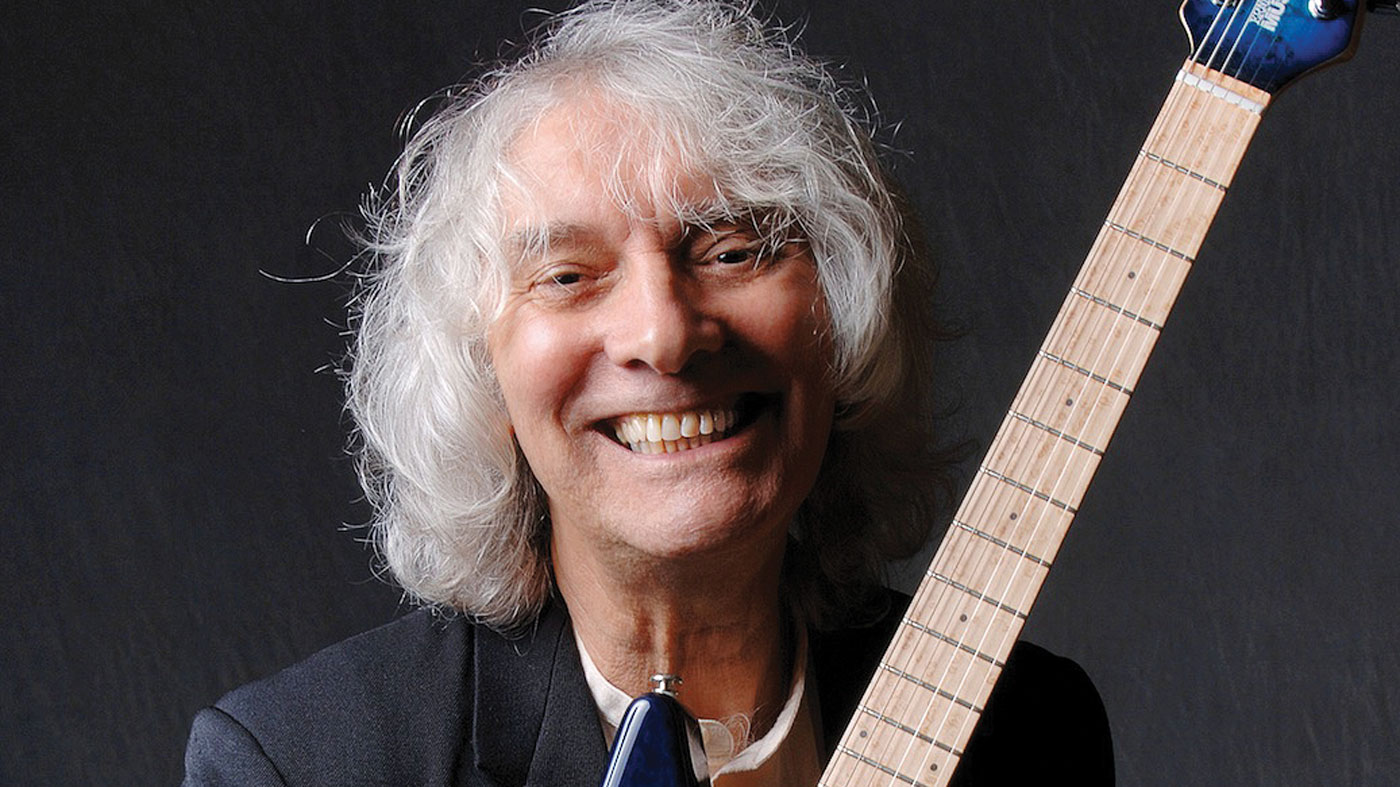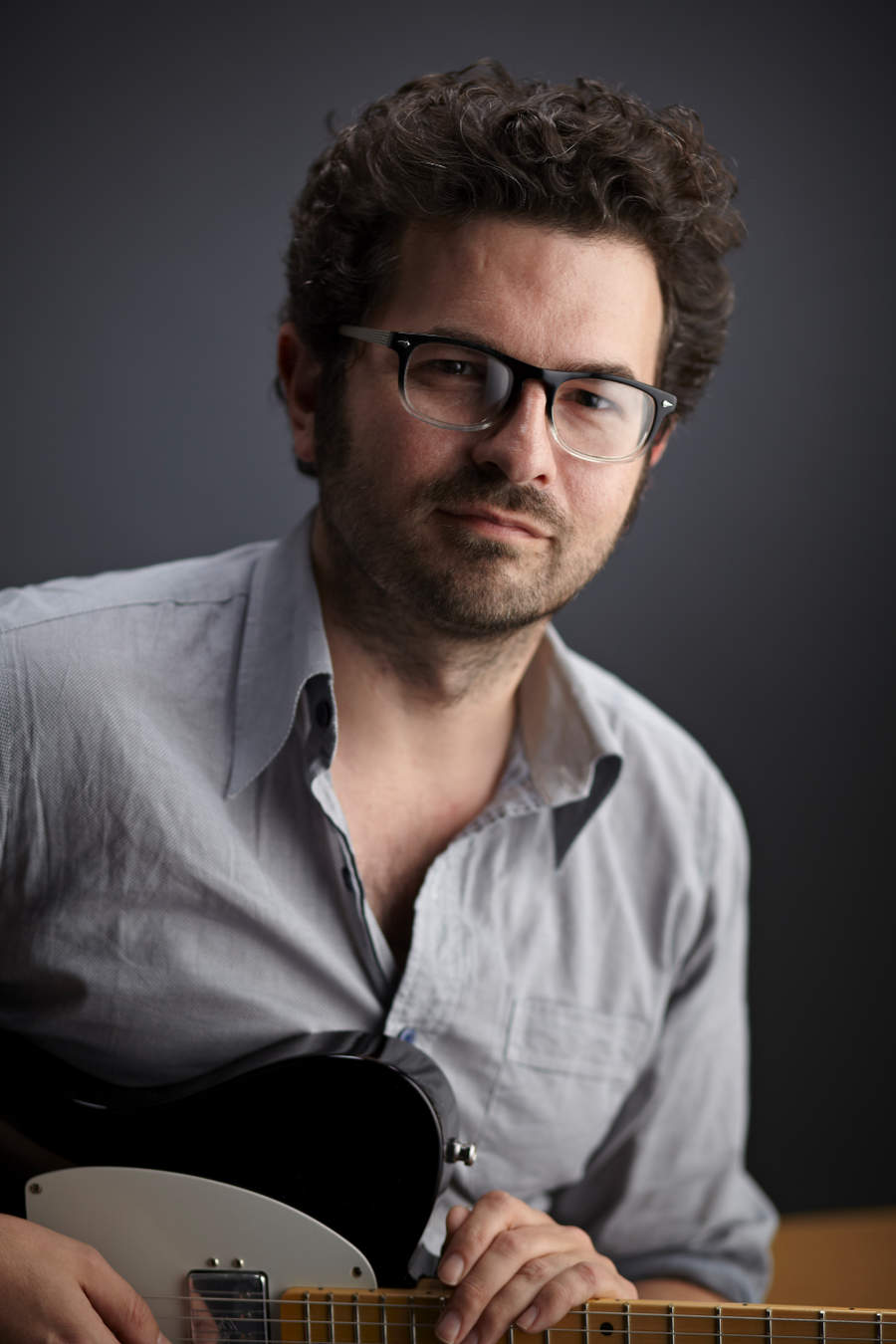10 questions for Albert Lee
Gifts from Clapton, first guitars and advice for his younger self

He may look like a city slicker, but he’s a country boy at heart, so how will he deal with the 10 questions we ask everyone?
1. What was your first guitar and when did you get it?
“That’s a very difficult question to answer, because I played guitar for 18 months without actually owning one. The first guitar that my folks bought for me was a very cheap Spanish guitar, which they paid about £3.10s for, but they soon realised I was getting on quite well teaching myself to play.
I always tell guitar players that they should learn to play with others. You can only get so far sitting in your bedroom
“So, at Christmas in 1958 they bought me a secondhand Höfner President and that was a revelation, because here was a guitar that had a reasonable action and that was easy to play. Up until then, guitars were really cheap things that you managed to pick up, but this was really good.”
2. The building's burning down; what one guitar would you save from your collection?
“I guess it would be Eric [Clapton]’s Les Paul Custom that he gave me, because that would be the guitar that would be worth the most! If my house was burning down, I’d need to start from scratch, y’know?”
3. What's the oldest guitar that you own?
“I’ve got a mandolin that’s about 110 years old - a Gibson mandolin, does that count? It’s an F-4; I had a 1913 F-4 previously, but I had that stolen when I was with The Everly Brothers and so I replaced it with another one, which I think is around 1915 or 1916.”
4. What's the next guitar that you have your eye on?
“I’ve bought one guitar in the last 30 years. I’ve been lucky enough to have had some nice guitars given to me over the years, but I mostly play my Music Man. But there are two guitars I would love, maybe three. I’d like an old Gibson archtop, maybe an L-5 - without the pickups - or a Super 400. I’d love a Southern Jumbo from the early 50s, similar to Don Everly’s; he did all those hits on a Southern Jumbo, but people think it was a J-200.”
5. What strings do you use?
“Ernie Ball strings. I’ve been involved with Ernie Ball since the early 70s - part of the family, really. They make my guitars and Sterling is godfather to my daughter and he was my best man and so on. I love what they make. I’ve messed around with gauges throughout the years.
Get the MusicRadar Newsletter
Want all the hottest music and gear news, reviews, deals, features and more, direct to your inbox? Sign up here.
“When I started playing, I’d buy a set of Gibson Sonomatics and an extra first string and use two first strings and move them all down one. When I was with Emmylou [Harris], I was so influenced by James Burton that I was using an 0.008 down to 0.038, I think. For many years, I’ve been using regular Slinky, but with a 0.017 instead of a 0.015.”
6. What are you doing five minutes before you go on stage?
“Oh, I dunno… making sure I’ve got all my lyrics sorted out. I’m not practising, I don’t practise much any more - I’m playing nearly every day, so I don’t do much practice. No rituals, really; make sure you go to the bathroom. I started taking those Vocalzone tablets, which really clear the nasal passages and they really help me to sing.”
7. …And five minutes afterwards?
“Afterwards, a glass of wine and I usually go and sign CDs and whatever. We usually have a table set up or there’s some area where we can meet people. It’s always good; people love to meet the artist.
When I do my own gigs, I nearly always go out there to say hello
“It certainly didn’t happen when I was with The Everly Brothers, because people didn’t want to see us, and Bill Wyman never goes out to meet the public after the show and so we didn’t, generally. When I do my own gigs, I nearly always go out there to say hello.”
8. What's the worst thing that's ever happened to you on stage?
“I had some health problems in the 60s, mainly digestive problems or whatever, and I’d play hot clubs - The Flamingo or some steamy hot venues - and I did pass out a couple of times on stage. It may have been a combination of things, but, touch wood, it doesn’t happen any more.”
9. What aspect of playing guitar would you like to be better at?
“I’d love to have more of a jazz knowledge. Martin Taylor’s a great friend and we played together in Bill Wyman’s band, and just watching him go through his chord melody playing was amazing. I have a pretty good knowledge of the fingerboard, but I guess I’ve never wanted to do it enough to learn to stretch myself to do that kind of thing.”
10. What advice would you give your younger self about the guitar if you had the chance?
“Well, I always tell guitar players that they should learn to play with other people. You can only get so far sitting in your bedroom, but there’s an art to being able to listen to other people and play with other people. There are so many good players out there - I won’t mention any names - but they haven’t learned how to be a band member and complement each other.”
Jamie Dickson is Editor-in-Chief of Guitarist magazine, Britain's best-selling and longest-running monthly for guitar players. He started his career at the Daily Telegraph in London, where his first assignment was interviewing blue-eyed soul legend Robert Palmer, going on to become a full-time author on music, writing for benchmark references such as 1001 Albums You Must Hear Before You Die and Dorling Kindersley's How To Play Guitar Step By Step. He joined Guitarist in 2011 and since then it has been his privilege to interview everyone from B.B. King to St. Vincent for Guitarist's readers, while sharing insights into scores of historic guitars, from Rory Gallagher's '61 Strat to the first Martin D-28 ever made.
“Every note counts and fits perfectly”: Kirk Hammett names his best Metallica solo – and no, it’s not One or Master Of Puppets
“I can write anything... Just tell me what you want. You want death metal in C? Okay, here it is. A little country and western? Reggae, blues, whatever”: Yngwie Malmsteen on classical epiphanies, modern art and why he embraces the cliff edge












